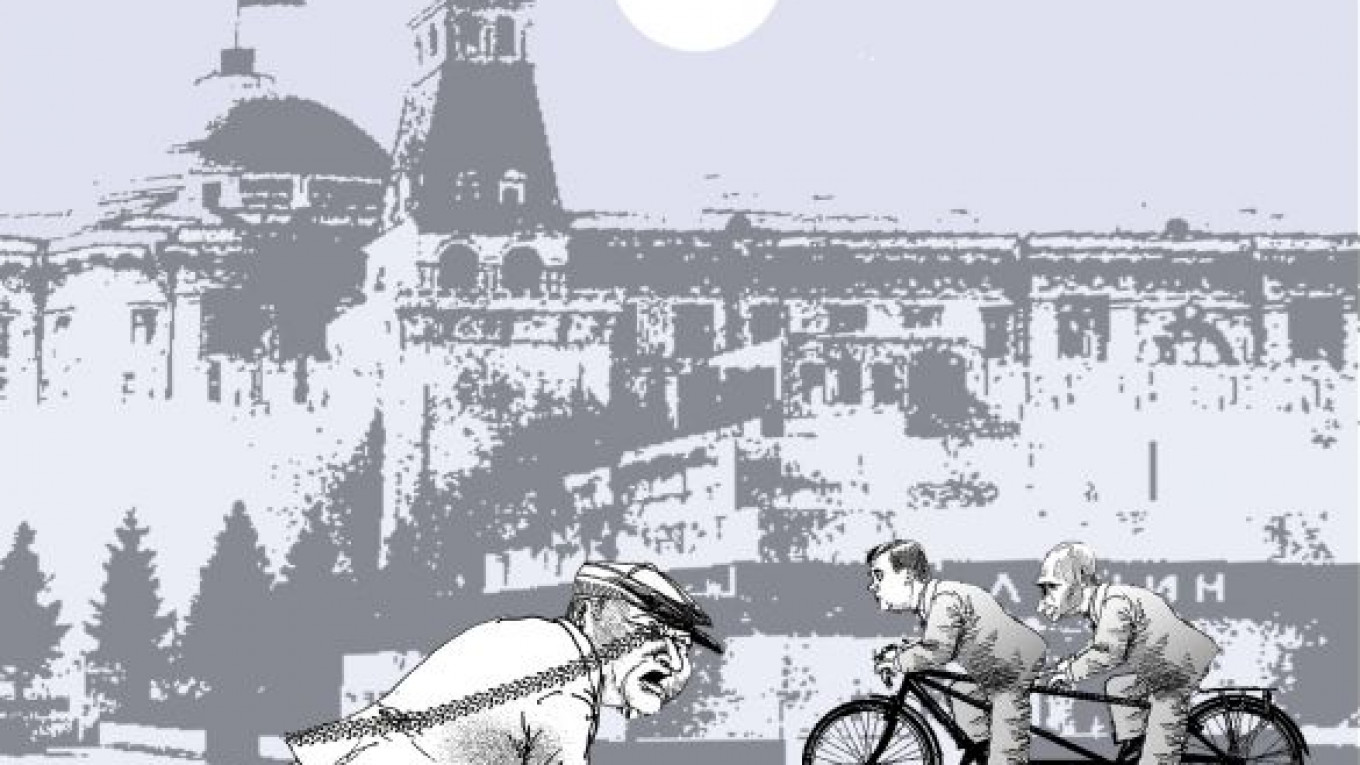The story of Yury Luzhkov’s ouster is extremely interesting and instructive, and it reveals a great deal about the structure of the current political system.
Although Luzhkov’s firing is in line with President Dmitry Medvedev’s policy of dismissing heavyweight governors, this case is clearly different. It is noteworthy that Luzhkov is the first governor that Medvedev has dismissed and the fourth — counting three governors from remote regions that then-President Vladimir Putin fired between 2005 and 2007 — to have been fired over a “loss of confidence.”
The political hunting season on influential governors began only recently, but it also will very shortly end. Last fall, United Russia could not have obtained the fantastically high results in the Moscow City Duma elections without Luzhkov. And immediately following the upcoming elections on Oct. 10, preparations will begin for the State Duma elections in 2011 and the presidential vote in 2012. Knowing that perfectly well, Luzhkov openly declared that United Russia would not make a strong showing in Moscow without his aid. He understood the time limits involved and clearly tried to bluff his way by upping the ante. It is uncertain who is actively opposing Luzhkov, but it is obviously an alliance of influential forces and not Medvedev operating alone.
Moscow’s mayor has repeatedly been subjected to similar attacks and had, until now, always managed to fend them off. This is partly because most, if not all, of the influential business and political clans opposing him had united in their determination to oust him but could not agree on a candidate to replace him. And with each attack, Luzhkov had to pay for his political survival by conceding some of his power, gradually weakening his position. As a result, the figure of the Moscow mayor is now only a pale shadow of what it was 10 years ago.
When he returned to work on Monday after vacationing in Austria for a week, Luzhkov repeated once again that he would not resign under any circumstances. It was clear he had no grasp whatsoever of the gravity of the situation.
Who won and who lost in the dramatic, mud-slinging Luzhkov affair? The revelations on television about Luzhkov’s alleged corruption and negligence cast a dark shadow over the entire government, and this extends all the way to Prime Minister Vladimir Putin, despite his efforts to distance himself from the scandal. Medvedev will come out a loser if Luzhkov wins his appeal against his dismissal in the Supreme Court, although this is a long shot. Medvedev will emerge as a winner if he manages to handpick the new mayor.
There is no substantive competition between Putin and Medvedev. They are in completely different weight categories. The theory that Putin actively backed Luzhkov while Medvedev fought against him doesn’t hold water. Putin has stayed on the sidelines throughout the affair, most probably because he found it less risky to stick with the “devil he knew” than to search for a replacement and rock the boat.
What happens next? If one of the competing clans puts its man in the mayor’s seat, it could upset the political balance of power. But dividing City Hall’s leadership between two positions: the mayor himself and the head of the body that represents the city of Moscow as a federal jurisdiction could help solve the problem. First, it will be easier for major competing clans to reach a compromise over a pair of weaker leaders than over one strongman and, second, it would enable the prime minister to name a successor from Luzhkov’s own team, such as acting Mayor Vladimir Resin, thereby ensuring the continuity of government. In any case, the next mayor will probably be only a temporary appointee and not a true city boss. The search for that person will be long and difficult.
In the end, Luzhkov will come out all right from the scandal, once he gets over the initial heavy blow to his ego. But things could take a turn for the worse if he decides to seek revenge, something that cannot be ruled out considering Luzhkov’s tenacious character. Most important, he will probably be allowed to keep most of his and his wife’s holdings. Permitting Luzhkov to keep his assets will help guarantee a peaceful, calm power succession.
Luzhkov’s ouster marks the end of an entire political era. It might be the last sharply competitive political struggle between rival camps that we will see under Putin’s political structure. But whether Putin’s system is able to outlive Luzhkov’s remains to be seen.
Nikolai Petrov is a scholar in residence at the Carnegie Moscow Center.
A Message from The Moscow Times:
Dear readers,
We are facing unprecedented challenges. Russia's Prosecutor General's Office has designated The Moscow Times as an "undesirable" organization, criminalizing our work and putting our staff at risk of prosecution. This follows our earlier unjust labeling as a "foreign agent."
These actions are direct attempts to silence independent journalism in Russia. The authorities claim our work "discredits the decisions of the Russian leadership." We see things differently: we strive to provide accurate, unbiased reporting on Russia.
We, the journalists of The Moscow Times, refuse to be silenced. But to continue our work, we need your help.
Your support, no matter how small, makes a world of difference. If you can, please support us monthly starting from just $2. It's quick to set up, and every contribution makes a significant impact.
By supporting The Moscow Times, you're defending open, independent journalism in the face of repression. Thank you for standing with us.
Remind me later.







